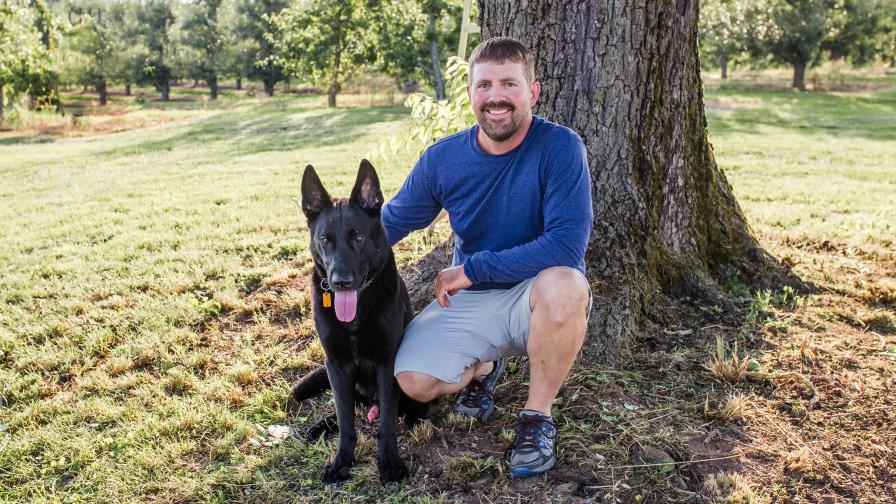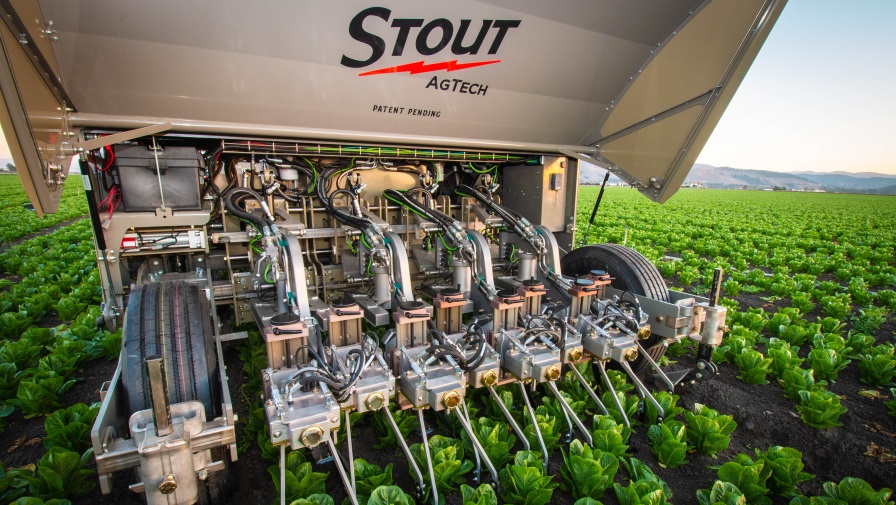Remembering a True Keystone in the Fruit Growing Industry
American Fruit Grower and parent company Meister Media Worldwide are pleased to announce the creation of the Richard T. Meister Award, designed to honor outstanding contributors to the fruit-growing industry. Meister, who was 100 years old when he died in 2020, served as Editor of American Fruit Grower, the company’s flagship, for 40 years. For more on the award, see my August 2022 Editorial.
It’s fitting the first recipient of the Richard T. Meister Award should be hailed in our August coverage of the American Fruit GrowerSM Apple Grower of the Year, because the first honoree, Bruce Hollabaugh of Biglerville, PA, would almost certainly have won that award someday. Hollabaugh, 41, died from a brain tumor in March, leaving a wife and three children.
Jim Schupp, a Pomologist at the Penn State Fruit Research and Extension Center, also in Biglerville, says it’s difficult to describe what Hollabaugh’s loss means, as the impact is immense.
“In addition to the family’s tragedy — he was so young — it leaves a huge gap in our leadership,” he says. “He was still an up-and-coming grower with so much to do, the next generation of an excellent fruit-growing family.”
Hollabaugh was Production and Personnel Manager and part of the third generation to grow tree fruit at Hollabaugh Brothers Fruit Farm. His father Brad was himself the 2000 American Fruit GrowerSM Apple Grower of the Year.

Bruce Hollabaugh, the first Richard T. Meister Award honoree.
Photo courtesy of the Hollabaugh family
Hollabaugh was named a founding member of the Advisory Council of GenNext Growers™, launched by American Fruit Grower and American Vegetable Grower in 2013 as a cross-produce-industry initiative to help the next generation of growers who seek to be advocates for the industry and are passionate about quality.
Hollabaugh certainly fit the bill, says Lee Showalter of Rice Fruit Company Grower Services, Gardeners, PA. He says he began walking orchards with Hollabaugh many years ago, and right off the bat was impressed.
“His horticultural knowledge, the care he took with the trees, he wanted to produce as much extra fancy fruit as he possibly could,” Showalter says.
Hollabaugh came out of Penn State with a degree in Horticulture in 2002, a practical major, also studying Spanish, an equally practical minor, as it enabled him to ensure the latest horticultural practices he learned could actually be applied in the field.
“The training sessions he initiated with Spanish workers in their own language were amazing. Getting them to understand all the changes in cultural techniques is critical,” Showalter says. “We’re growing trees at much higher densities: How do we prune this tree’s fruit as opposed to that tree’s? Bruce was teaching them.”
The pruning demonstrations made an immediate impact, Schupp says, who would do his part in English, then pause for Hollabaugh to translate.
“You can’t exactly use your high school Spanish to teach the tech side of pruning, but he had it figured out. When we needed someone to translate for workers, he was the go-to guy,” Schupp says. “Pruning seminars at growers’ ranches, Bruce would gather them around, he would translate — and he was good, he was really good. Bruce could do it with frosting on top.”
Hollabaugh also made a tremendous, lasting impact on the industry with his work as the Chairman of the Research Committee of the State Horticultural Association. He joined the committee fresh out of Penn State and became something of a lifelong liaison to the university.
Phil Baugher, past President of Adams County Nursery, Aspers, PA, served as Commission Chairman for many years, grooming Hollabaugh to succeed him in 2016 at the ripe old age of 35.
“He did so much in a short period of time,” Baugher sighs. “It was amazing.”
Hollabaugh taught pruning but knew severe labor shortages were coming, making it vital for the industry to mechanize. Hollabaugh worked as Chairman to get an agricultural engineering lab established at the Penn State Fruit Research and Extension Center, a mission he accomplished two years ago.
“He had such vision and worked tirelessly to achieve some of these goals,” Baugher says. “He really interacted with the dean. He was passionate about research and the fruit lab at Biglerville — the success of the scientists there. Visionary and practical, an unusual combination.”
He was so important to the industry that Schupp says though there are still a lot of good growers who will step forward, no one’s going to replace Bruce Hollabaugh.
“Thinking big picture, it’s like losing a keystone,” he says. “Pennsylvania is the Keystone State, and he was definitely a keystone.”









